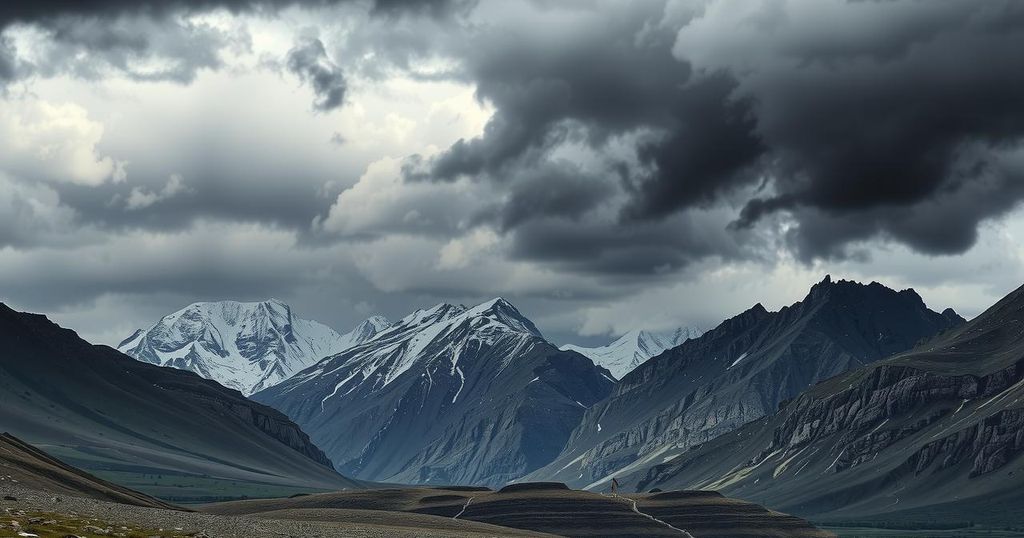Bolivia’s Electoral Court Disqualifies Morales, Suspends Key Candidate Amid Backlash

Bolivia’s electoral court disqualified former President Evo Morales and suspended key candidate Andrónico Rodríguez from the upcoming elections, eliciting backlash from both. Morales claims this is an attack on democracy, while Rodríguez calls the decision politically motivated. The backdrop of economic crisis and internal party strife complicates the political atmosphere as the elections approach.
In a significant move that has drawn widespread criticism, Bolivia’s top electoral court on Tuesday disqualified Evo Morales, the country’s former president, from the upcoming presidential elections. The court also suspended Andrónico Rodríguez, a key candidate and Senate president, effectively sidelining two prominent leftist figures opposing President Luis Arce. Both Morales and Rodríguez claim this decision demonstrates the government’s increased control over Bolivia’s judiciary, calling it an attack on democracy.
Evo Morales, who previously served as Bolivia’s first Indigenous president from 2006 until his ouster in 2019, expressed his discontent during a local radio interview. “We have been persecuted,” he stated, unveiling his concerns about the current state of democracy in the country. He further threatened to lead protests if he is barred from participating in the race, indicating rising tensions as election day approaches.
Rodríguez, a relatively fresh face in the political landscape at just 36 years old, criticized the electoral court’s decision, characterizing it as politically motivated. He took to social media, declaring, “No ruling or judicial decision driven by political interests can overrule the sovereign will of the people.” Rodriguez’s candidacy was expected to resonate with voters fed up with both Morales’ past leadership and Arce’s management of the ongoing economic crisis.
The electoral court has attributed the disqualifications to technicalities regarding candidate registration deadlines. A noticeable rift has emerged within the dominant Movement Toward Socialism party, with Morales and Arce’s rivalry sharply dividing their ranks. As a result, Arce has stepped back from the race, nominating Eduardo del Castillo, a lawyer and loyal ally, to take his place as the MAS candidate.
However, Del Castillo has not garnered the same enthusiasm that Morales and Rodríguez inspired among voters. Meanwhile, the opposition is experiencing its own struggles, with infighting preventing them from finding a clear candidate as they aim to challenge nearly two decades of socialist governance.
The electoral court’s ruling on Morales was anticipated due to his new political party, “Evo Pueblo,” lacking the necessary official status. His allied party also failed to meet specific legal criteria for candidacy. Despite maintaining claims of political legitimacy, Morales is further hindered by constitutional restrictions limiting presidencies to two terms.
Analysts have pointed to the ruling by the Constitutional Court, perceived as politically driven, as indicative of broader issues within Bolivia’s judicial framework. Kathryn Ledebur of the Andean Information Network criticized Arce’s handling of justice reforms during his administration, noting that this situation may lead to chaotic and unpredictable electoral outcomes.
Perhaps the most surprising aspect was the suspension of Rodríguez’s candidacy pending legal review of his political alliance, with an initial court session slated for Wednesday. This has not gone unnoticed, as even members of the electoral court have voiced concern. Francisco Vargas remarked that ongoing legal actions threaten the integrity of Bolivia’s democratic processes, alerting both the nation and the international community to the precarious situation.
In summary, Bolivia’s electoral court has disqualified Evo Morales and suspended Andrónico Rodríguez from the upcoming elections, igniting controversy over perceived government manipulation of the judiciary. With both leftist candidates condemning the actions as antidemocratic, tensions rise as the nation anticipates the consequences for its political landscape. The internal rift within the ruling MAS party and ongoing economic challenges further complicate a precarious electoral season. The viability of the upcoming elections is now under intense scrutiny, raising significant questions about Bolivia’s democratic future.
Original Source: ca.news.yahoo.com







